
The International Federation of Sport Climbing (IFSC) has released an updated startlist for the IFSC Combined Qualifier event in Toulouse, France at the end of this month. As previously reported, a last-minute rule change made by the IFSC caused confusion as the 2 athletes per country maximum quota was dropped, meaning that 2 men and 2 women who had initially made the top 20 cut-off were surplus to the selection event quota and their invitations were revoked. The International Olympic Committee (IOC) appears to have approved the IFSC's proposal to invite an expanded field of 22 athletes per category to Toulouse.
In early November, discussions between federations and athletes revealed that the IFSC sent 40 invitations to the IFSC Combined Qualifier event in Toulouse to the 20 top-ranked climbers of each sex in the 2019 Combined World Rankings, only to subsequently delete a maximum quota of 2 athletes per country from the selection document a few days later, meaning that four invited athletes were no longer eligible to compete. Equally unclear were Japan's athlete selection decisions from the Hachioji Combined World Championships and their athletes' eligibility for further participation along the Olympic selection pathway, now that 2 Olympic quota places have been confirmed by the Japan Mountaineering and Sport Climbing Association (JMSCA).
Since the country quota maximum of 2 has been removed from the Toulouse selection document, Japan can send 4 men to the selection event, as Rei Sugimoto and Keita Dohi are now eligible for invitation (behind Kokoro Fujii and Meichi Narasaki, disregarding confirmed Olympic qualifiers Tomoa Narasaki and Kai Harada) despite being unable to qualify for an Olympic quota place. The French and USA teams were equally affected in the women's event, since both countries have >2 athletes in the top 20. Anouck Jaubert (FRA) and Margo Hayes (USA) are now eligible to compete under the amendment. The 4 climbers from other nations who initially had their invitations revoked - Sandra Lettner (AUT), Iuliia Kaplina (RUS), Jernej Kruder (SLO), and Aleksei Rubtsov (RUS) - have seemingly now been confirmed as eligible to compete by the IOC, taking the Toulouse quota from 20 athletes per sex up to 22.
No press release has been issued by the IFSC, but an earlier version of the startlist included the four additional athletes in separate rows from the top 20, under the title 'Pending IOC Confirmation.' These athletes are now shown as being included in the field.
In Toulouse (28th November- 1st December), the top 6 athletes per sex will qualify for an Olympic quota place, excluding those ruled out by the 2-per-country maximum rule.
No further information on the JMSCA's lawsuit against the IFSC has been released.
View the startlist here.
Read a UKC article on the Olympic Selection pathway.



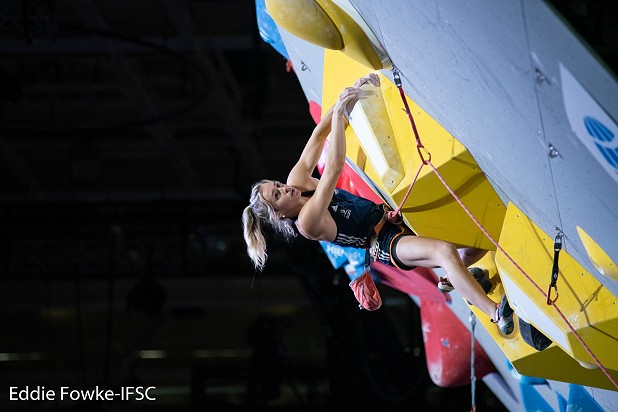
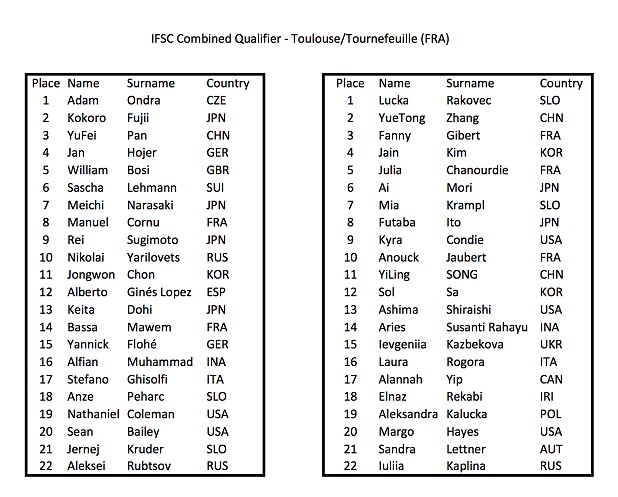




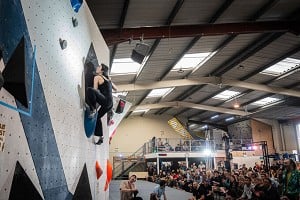
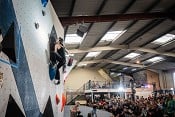


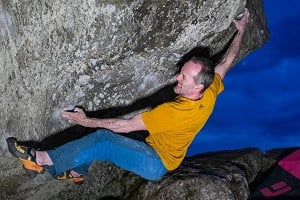
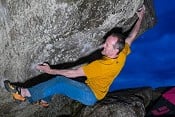
Comments
Boooooo... to Team Japan! Stand aside, give the others a clean run.
#noreasontobethere
So say Japan took one less male, does that mean no 23 in the rankings now gets an invite, or does it mean only 21 in the competition?
In the actual competition I can't see how it makes much difference if they're there or not; top 6 who are eligible (so not including any from Japan) get the places.
And if I was Japan, I think I'd want as many of my athletes as possible having reached the qualification standard - just in case things went funny during the next year. The rules have already shown themselves to be even less obvious than originally thought. If anything goes wonky approaching the Olympics with a difficult dispute, the IOC is much more likely to go for an easy "add an extra athlete who's also reached the qualification standard" rather than the risk of missing out someone who should be there.
Methinks you is wielding a wooden spoon :-)
I'd need to look again at all the to-ing adn fro-ing on the two per country rule to work that out but it's clear on the mens side, two guys have missed out due Japan having four there.
It could potential make a big diffrence. Example, if a guy is 11th at qualification stage he misses the final if 4 Japanese are ahead, leaving him 7th in line and out of the OG places. Had the Japanese not been there he'd have gone into the finals in 7th place with a chance to move up one spot in the final.
Also, the mathmatics of scoring system mean that if you aren't able to shine in your best decipline, bouldering say, due to the Japanese also being strong in the decipline then that gives an advantage to guys that are stronger at deciplines where the Japanese are relatively weaker. Every place you lose to a Japanese guy will really dent your multiplication factor.
Yeah, I guess the Japanese still think there is the legal side still to play for.
As ever.
Thanks Nat. Another nice summary.
To those frowning on Team Japan, they are just trying to get their best athletes into the Olympics. Their hope had long been to get as many athletes 'qualified' via Hachioji, Toulouse, Asian championships and wait until 2020 to select which ones would actually go to the Olympics within their 2 per gender quota. This is the subject of the litigation mentioned.
Meanwhile, other athletes are not being harmed by Japan's actions. The four who would have been bumped when the Japanese athletes were allowed to go to Toulouse were invited anyway as mentioned in the article. Scoring in Toulouse won't be affected either because the output will be an order of athletes, where the top 6 will get Oly invites unless their country has already maxed out its slots. So just sit back and get psyched to see another great combined comp in a week!
So that might make a difference to other individuals, but not to the competition as a whole; e.g. might stop someone recovering from 11th -4 = 7th to 6th, but of course that also means it stops someone who was 6th, dropping out of the places to 7th. Also the "best discipline" argument will again distort things for individuals but not overall.
Missing places - I see what you mean, it's not the extra 2 from Japan, the athletes they bumped down are now going, it's the athletes "denied" by the "original" 2 going to Toulouse. Cruel but since they were ranked 23 & 24, they would presumably have less chance of qualifying anyway. You might say it's a top athlete returning from injury, well tough. That's what happens in the Olympics all the time, qualification is hard and brutal. The climbing qualification is relatively gentle with all its various routes and multiple chances.
Best example I can think of brutal qualification; US track and field - top 3 at their trials for each event who have (inevitably) made the qualification standard. No ifs, no buts, doesn't matter what you've previously done, who you are, injury, illness, whatever. Top 3. But everyone knows exactly where they stand.